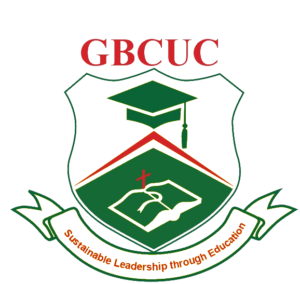
PROGRAM INFORMATION
TYPE: DIPLOMA
DURATION: 3 YEARS
ACCREDITATION: HEA, ZQF LEVEL 6
Diploma Secondary Teaching – COMPUTER STUDIES EDUCATION AND MATHEMATICS
Computer Studies Education is essential in the modern world due to the increasing integration of technology in all aspects of society. It equips students with valuable digital skills, fosters problem-solving abilities, and prepares them for a technology-driven workforce. This education is crucial for developing a technologically literate citizenry and promoting innovation and creativity.
Mathematics Education is fundamental to developing logical and analytical thinking skills, problem-solving abilities, and a deep understanding of quantitative concepts. It provides the foundation for various disciplines and is crucial for everyday decision-making and critical reasoning.
Program Outline
| YEAR 1 | |
| COURSE CODE | COURSE TITLE |
| HPE 41002 | History and Philosophy of Education |
| CSS 41003 | Communication and study skills |
| EPS 41004 | Education Psychology and Sociology of Education |
| ICT 41005 | Information Communication Technology |
| MED 41101 | Mathematics I |
| MED 41102 | Mathematics teaching methods I |
| CSE 41131 | Computer studies teaching methods I |
| CSE 41135 | Computer studies I |
| YEAR 2 | |
| COURSE CODE | COURSE TITLE |
| CRE 42004 | Curriculum studies and assessment |
| CSE 42131 | Computer studies teaching methods II |
| CSE 42135 | Computer studies II |
| MED 42101 | Mathematics II |
| MED 42102 | Mathematics teaching methods II |
| STP 42003 | Teaching practice I |
| ERP 42002 | Education Research |
| SGC 42001 | Special education, guidance and counselling |
| YEAR 3 | |
| COURSE CODE | COURSE TITLE |
| CSE 43131 | Computer studies teaching methods III |
| CSE 43135 | Computer studies III |
| EED 43001 | Entrepreneurship Education |
| ELM 43002 | Education leadership and management |
| ERR 43003 | Education Research (Research report) |
| STP 43004 | Teaching Practice II |
| MED 43101 | Mathematics III |
| MED 43102 | Mathematics teaching methods III |
Programme Aims and Objectives
Upon completing a Computer Studies Education program, students should be able to:
Demonstrate proficiency in using computer hardware, software, and digital tools for various tasks, including word processing, data analysis, and programming.
Develop critical thinking and problem-solving skills through algorithmic thinking and the application of computational problem-solving techniques.
Communicate and collaborate using digital tools, including email, social media, and multimedia presentations.
Collaborate on technology-related projects, including planning, delegation, and effective teamwork.
Demonstrate proficiency in core mathematical concepts, including arithmetic, algebra, geometry, calculus, statistics, and discrete mathematics.
Apply mathematical reasoning and problem-solving skills to analyze and solve a wide range of real-world problems and mathematical challenges.
Develop critical thinking skills by evaluating mathematical arguments, proofs, and mathematical models.
Explore advanced mathematical concepts and their applications in specialized areas, such as calculus, linear algebra, and statistics.
Create and analyze mathematical models to represent real-world phenomena and make predictions.
